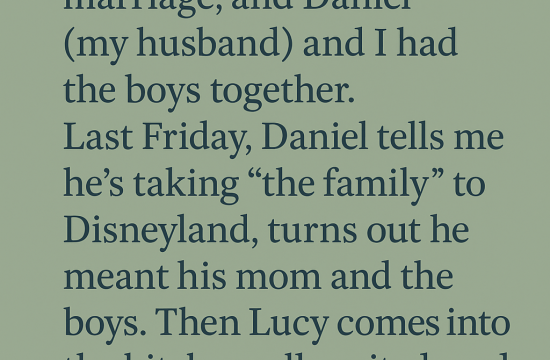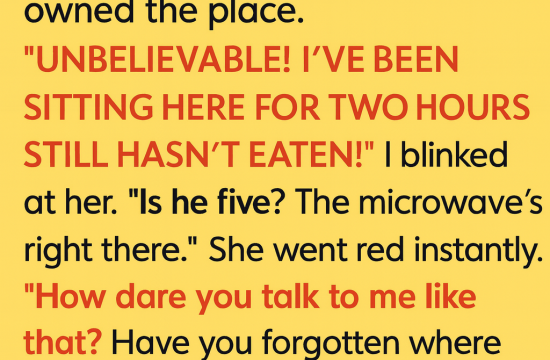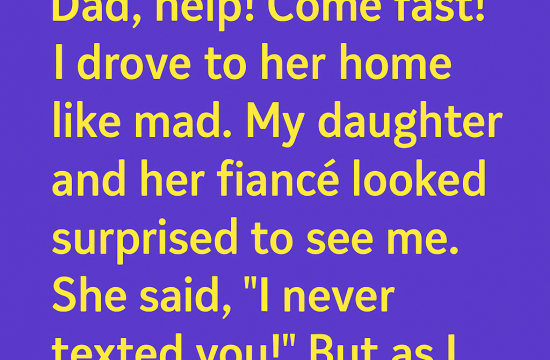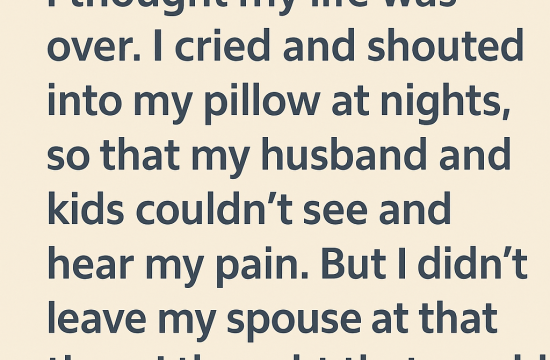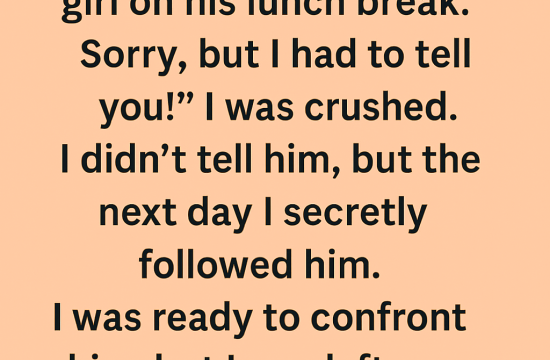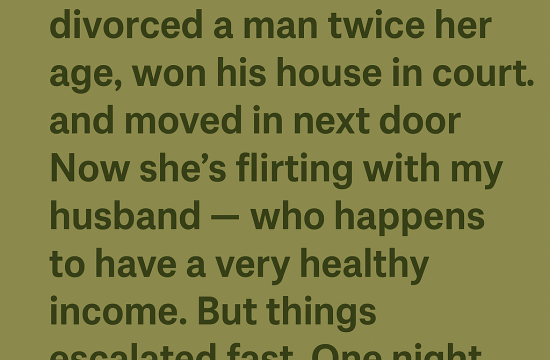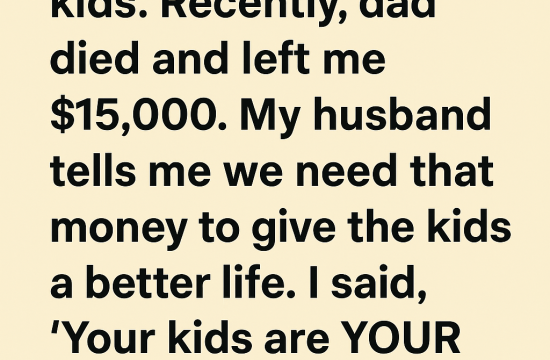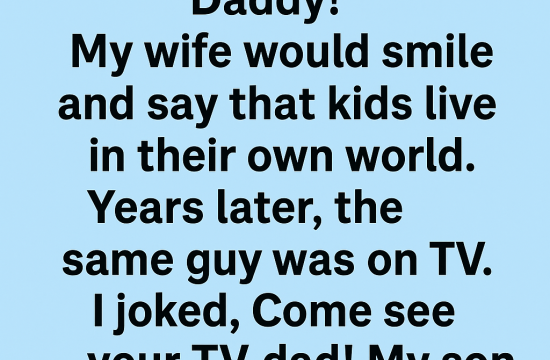I was 19 when I was run over by a car on my way to work. For me, it felt like the end of the world: a screech of tires, darkness, and unbearable pain. And when I woke up, the doctors’ voices told me I might never walk again.
The first words out of my mouth were for my father. But he didn’t come. Not that day. Not the next. He only showed up three days later, looking disheveled and reeking of alcohol. I knew instantly he had been on a bender while I lay between life and death.
My mother had died when I was 12, breast cancer claiming her frail body. She was a gentle, weary woman who endured my father’s cruelty in silence, scraping together meals while he drank his paycheck away. By the time I was 14, he ordered me to find work. At 16, I dropped out of school to support us both.
But when he finally stood by my hospital bed, there was no compassion in his eyes. The doctor explained that my spinal cord wasn’t severed, but it was badly bruised. Walking again was a slim possibility. Most likely, I’d be in a wheelchair for life.
My father snorted. “She’s over 18, isn’t she? An adult? Then she’s not my responsibility. You take her.” He gave my limp legs a look of disgust. “Useless! Useless like your mother.”
Those words were the last I heard from him for six long years.
I was eventually transferred to a recovery center, where fate placed me under the care of Carol Hanson, a tough but motherly therapist. She had a way of being both stern and warm, and she refused to let me surrender to despair. For a year, she pushed me harder than anyone had ever pushed me. The day I stood up and took a shaky step, we both sobbed.
But triumph was bittersweet. I could walk again, but I had no family, no home, nowhere to go. One evening, Carol found me crying in my room. “Jenny,” she said gently, “it’s all right to be scared. You’re starting over.”
“I have no one,” I whispered.
“Yes, you do,” she said firmly. “You have me. Come live with me until you get back on your feet.”
And so I did. She gave me her daughter’s old room, a beautiful space she hadn’t touched since losing her years ago. In that house, I felt love again for the first time in forever.
Carol pushed me not only to recover but also to dream. When I talked about finding a job, she handed me flyers for night school. “You need your education back,” she insisted. I panicked, but she cut me off: “I’ll loan you what you need. Pay me back later. Your future is worth investing in.”
Her faith carried me forward. I completed high school, enrolled in college, and—because of Carol’s inspiration—studied nursing. Four years later, I graduated summa cum laude and began working in neonatal care.
Life came full circle when a local TV crew filmed me with newborn triplets. For a brief moment, I was a minor celebrity. But that attention brought an unexpected visitor.
One evening, the doorbell rang. My father stood there, a shadow of a man—gaunt, yellow-skinned from liver damage, and reeking of alcohol. “Jenny, my sweet baby girl!” he cried. “I’ve finally found you again.”
“Found me?” I said coldly. “You abandoned me in a hospital. Remember? You called me useless.”
Tears ran down his dirty cheeks. “Forgive me. I was scared. But now I’m sick, Jenny. I need you. I have no money, no food. You wouldn’t let your daddy starve, would you?”
For a moment, I looked at him and saw the man who had destroyed my childhood. And then I remembered Carol—the woman who had saved me.
“Guess what, Daddy?” I said, my voice steady. “I’m not helpless anymore. And I don’t need you.” I slammed the door in his face.
When I turned back, Carol looked at me from the couch. “Who was that, Jenny?”
I smiled faintly. “Nobody important.” I sat beside her and hugged her tightly.
She hugged me back, then pulled away with tears in her eyes. “Jenny, there’s something I’ve wanted to ask you. Would you let me adopt you? You’re already my daughter in every way that matters.”
I broke down, crying into her arms. That night, I realized the truth: sometimes life doesn’t give you the family you deserve—but it gives you the one you need.
Moral
Family isn’t always defined by blood. Sometimes the people who love, support, and fight for you become the truest family of all.




